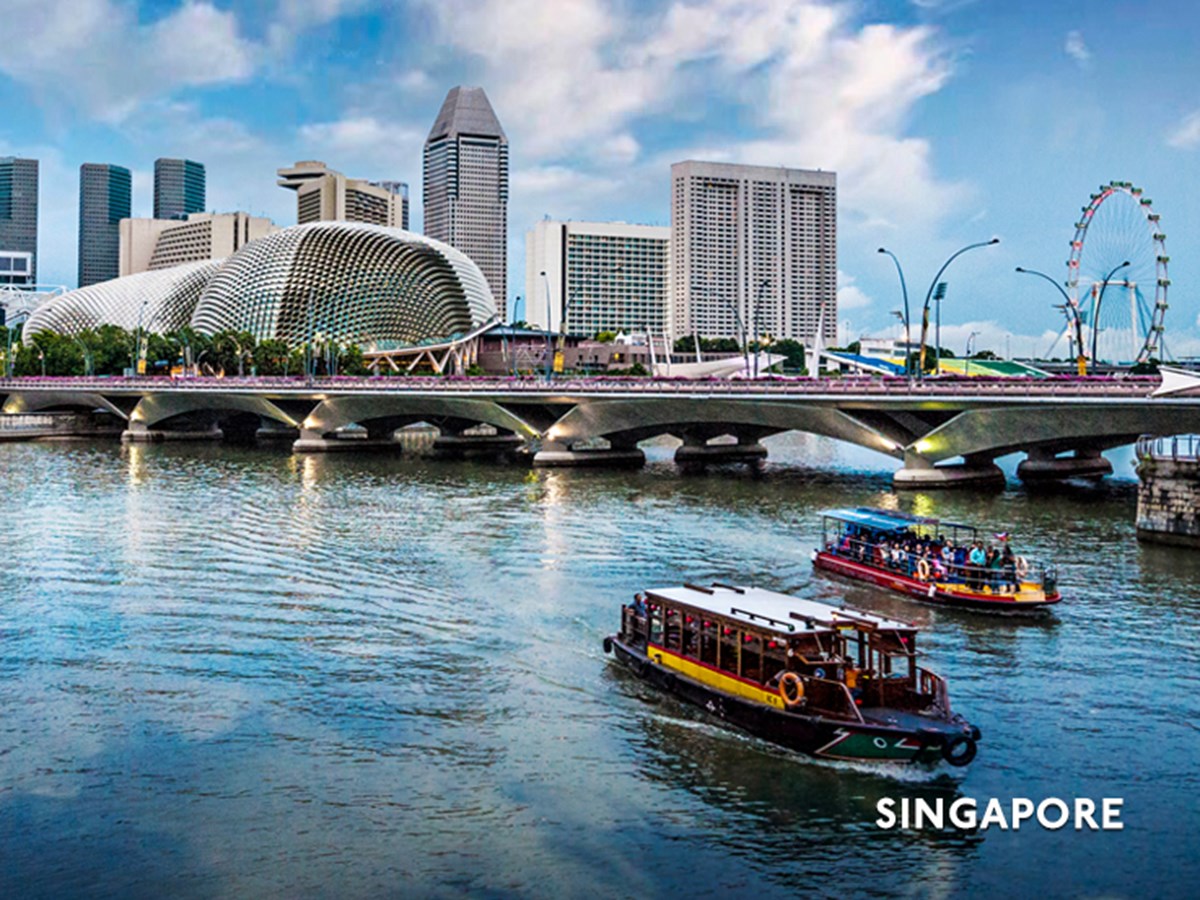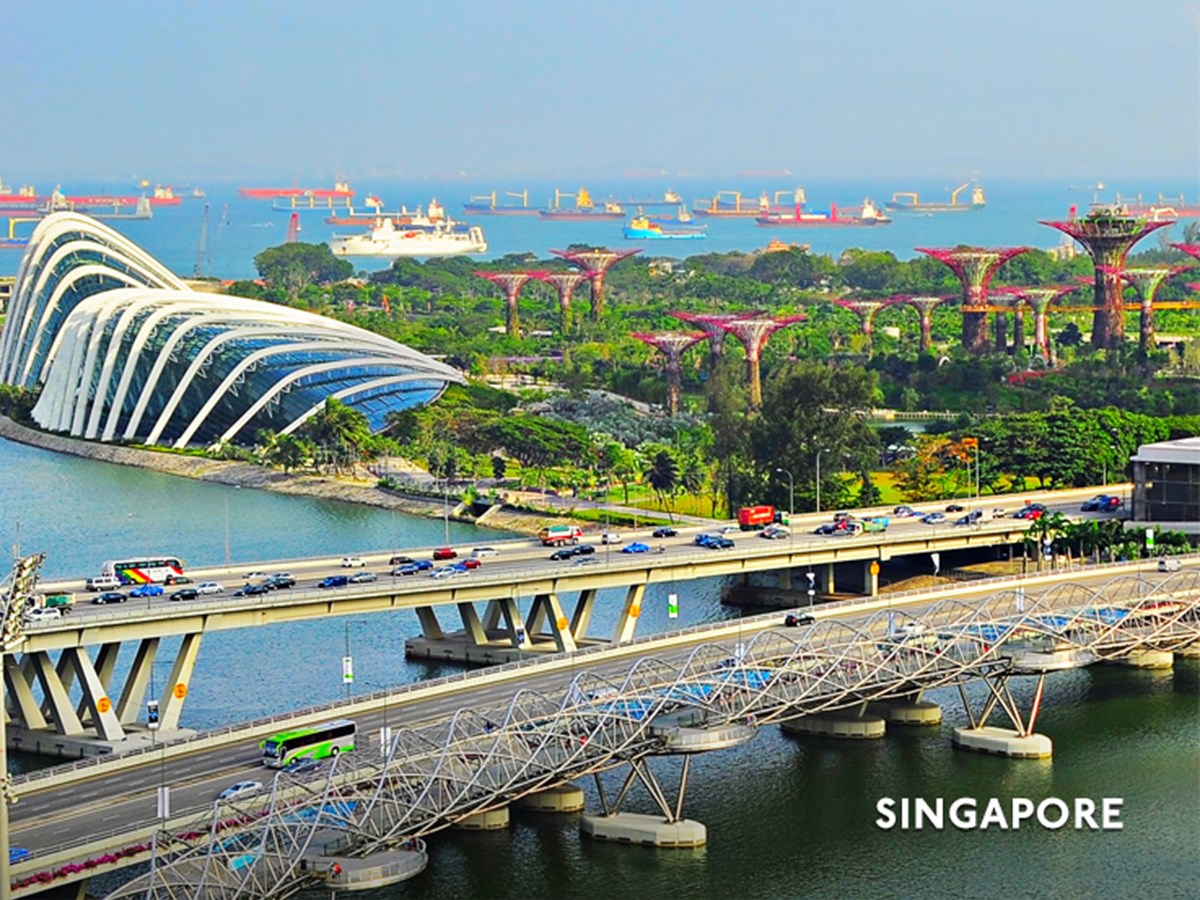
Singapore competition law in 2025: What has changed and what has not changed

Introduction
In 2025, the Competition and Consumer Commission of Singapore (“CCS”) commemorates its vicennial anniversary as Singapore’s national antitrust regulator. CCS has grown significantly in terms of the scope of its jurisdiction and its global standing in the last 20 years.
In his anniversary address, CCS Chairman Mr Max Loh identified milestone achievements such as CCS’ decisive market intervention and its additional focus on consumer protection. Mr Loh also highlighted CCS’ strengthened international leadership and announced that CCS’ Chief Executive Mr Alvin Koh had been elected Vice-Chair of the International Competition Network, the flagship platform for the world’s competition authorities.
This inaugural thought leadership article focuses on the current state of CCS’ competition law enforcement in 2025 and, in particular, what has changed and what has not changed in its approach over the last five years.
Competition law enforcement landscape in 2025
One of the most dramatic changes to Singapore’s competition law enforcement in recent years has been the return of Mr Alvin Koh to CCS. Mr Koh headed the Legal & Enforcement Division of CCS from 2008 to 2012.
During his initial tenure, Mr Koh oversaw a heightened review of global mergers, the first merger clearance requiring structural remedies, the first proposed decision to block a merger, and the first international cartel decision. Mr Koh went on to hold Chief Legal Officer positions within several Singapore government ministries before his return to lead CCS.
Anecdotally, Mr Koh’s return has been received positively by businesses and the Singapore competition law bar. It often appears counter-intuitive, but businesses may prefer a rigorous but consistent regulator over one which enforces seldomly and randomly. Businesses can plan for systemic contingencies; uncertainties are impossible to make provisions for.
A good parallel in Singapore is the Monetary Authority of Singapore (“MAS”). The financial services agency has a reputation for being one of the toughest regulators in the country. Licensees face exacting standards and are persistently kept on their toes. A financial institution operating in Singapore knows that MAS will apply the same rigour it experiences to its own present and future competitors. This gives industry players confidence in the system and uplifts the entire sector. It has been reported that Singapore has now overtaken Hong Kong as a global financial capital after New York.
The same can be said for the country’s national competition regulator. Within the first year of Mr Koh’s return, it is observable that CCS is back to form with a strong enforcement presence. It has conducted dawn raids and has initiated a notable surge in enforcement cases and market studies.
For global leniency applications, which lulled globally after the international auto-parts cartel saga finally ended years ago, Singapore has now seen such cases return.
What has changed
Increased vigilance over unnotified mergers
Singapore is one of the few tier-one competition law jurisdictions to operate a voluntary merger control regime. Others include the United Kingdom (“UK”), New Zealand and, until recently, Australia.
Effective voluntary merger regimes are predicated on active monitoring and horizon-scanning, and call-ins of unnotified deals such as the way that, say, the UK Competition and Markets Authority (“UK CMA”) does.
Since the Singapore merger regime became effective in 2007, parties announcing deals with a nexus to Singapore have from time to time been queried by CCS if they have conducted their mandatory self-assessments prior to signing. Anecdotally, the Singapore enforcer has also investigated unnotified deals that have been closed for years when it has had reasonable grounds to suspect that the merger should have been notified.
Within his first year, Mr Koh has signalled that he will administer the regime with rigorous consistency. He has publicly stated in the CCS Annual Report 2023-2024 that: “While CCS operates under a voluntary merger regime, we remain vigilant and carry out regular surveillance to find unnotified mergers and determine if they substantially lessen competition”. Anecdotally, the step-up in follow-on queries by the agency on closed deals has provided parties clarity on how to approach Singapore’s voluntary merger control regime in its global multi-jurisdictional filing analyses.
Use of AI in horizon-scanning: Escalated deal detection risk
CCS has included AI in its horizon-scanning toolkit for unnotified mergers and anti-competitive behaviour which affects Singapore. This is entirely sensible, and there is broad-based consensus that AI deployed properly in antitrust enforcement can be positively-enhancing.
Horizon-scanning is a tool that is important especially because Singapore is a global price-taker which imports 90% of what it consumes. This concept is explored further below. Singapore’s involuntary price-taker position is why comprehensive and precise detection of global sources of potential competitive harm is important.
One hypothesis is that once a Singapore agency introduces a predictive tool, such as AI for enforcement purposes, it would be difficult for the agency to ignore entirely the output of such a tool.
It is plausible that the AI will scan for sensitive markets in Singapore such as:
- Politically-sensitive B2C markets (for example, healthcare, transport, housing); and
- Notable contributors to Singapore’s foreign direct investment (for example, finance, maritime, pharmaceuticals, advanced manufacturing).
Consequently, the “risk-rating” of “taking the antitrust risk” (in other words, not voluntarily notifying a deal where thresholds are crossed) must henceforth be necessarily reassessed for Singapore in 2025.
Novel and globally-trending theories of harm in enforcement
In the years leading up to 2025, the world experienced global shockwaves in terms of non-traditional theories of harm and perceived jurisdictional overreaches. Examples include Booking.com/Etraveli, where the European Commission (“EC”) adopted the novel theory of harm of “ecosystems” and in Illumina/Grail, where the EC adopted the approach of accepting “Article 22 referrals” even where national thresholds were not crossed.
In 2024, CCS proposed to block a non-horizontal transaction on the basis that the transaction was likely to entrench or strengthen a dominant position, a theory similar to ecosystems in Booking.com/Etraveli instead of the conventional reliance on a substantial lessening of competition as the pivotal test of harmful mergers.
In the same year, CCS issued interim measure directions on a deal which had not been signed but had been flagged by market rumours, marking the “injunction” as the agency’s first-ever intervention in a speculative and unconfirmed transaction. Market observers commented that the trauma of “fall-through-the-crack” transactions, where parties exploit the voluntary and non-suspensory nature of the Singapore regime to sign and close before engagement, has stayed with the authority ever since an iconic 2018 deal in the ride-hailing space which CCS eventually prohibited but could not unwind.
Augmented use of commitments in case clearances
In an interview with the Global Competition Review, Mr Koh indicated that he would continue to trial approaches, including using commitments, to clear agreements that generate economic benefits for the Singapore economy.
He also identified aviation as a market that is key to Singapore.
While the use of behavioural and structural remedies in the agency’s approach to clearing complex mergers, especially those in Phase 2 in the last 20 years is nothing new, it is notable, given the above two comments, that there have been five airline alliances (also known as “metal-neutral” mergers) reviewed under Mr Koh’s watch so far, such as SIA/Tata, SIA/Lufthansa and SIA/ANA which, in-line with global custom, were cleared with heavily-negotiated capacity commitments.
What has not changed
Singapore as a vulnerable global price-taker
Singapore is a global price-taker as it is a significant net importer of products that its residents consume and utilise. This means that global manufacturers and suppliers who engage in anti-competitive conduct and mergers have an outsized and disproportionate effect on Singapore because the country lacks domestic markets to offer either a constraint or a panacea to such offshore behaviour and combinations.
The vulnerability of Singapore’s net price-taker status has been magnified against a backdrop of global uncertainty and supply chain disruption. Unlike larger economies, Singapore lacks the natural and organic ability to offset the harmful effects of international cartels and monopolies.
Competition law regulation is therefore very critical in protecting the Singapore economy. CCS has determinatively been open to questioning global deals and to accepting international cartel leniency applications. It is proposed that this unchanged position, together with the global volatility of 2025, will inform Mr Koh’s aim of wanting his agency to become “bolder” and “nimbler”, and to “pursue new approaches and enforcement methods”, as mentioned in the Global Competition Review interview.
Specific risks of non-engagement with CCS
Singapore’s merger regime is one which may be inadvertently disregarded by parties and counsel conducting multi-jurisdictional reviews purely on the basis that it is voluntary and non-suspensory.
Mandatory regimes offer clear guidance as to whether a filing is required by computing revenue figures. Risk-based voluntary regimes, more than ever, pose a danger to being bypassed. The Singapore-specific risks that remain unchanged but have an enhanced relevance in 2025 include:
- Evergreen jurisdiction over unnotified mergers: There is no limitation period to the agency’s ability to review unnotified mergers. Unlike the UK CMA, which also operates a voluntary merger control regime, CCS’ lookback jurisdiction is unlimited in time. As mentioned above, anecdotally, CCS has investigated unnotified deals that have been closed for years when it has had reasonable grounds to suspect that the merger should have been notified.
- Risk-based voluntary regimes bear highest completion risk when deals called-in: Once CCS opens an investigation into an unnotified merger, it does not operate on a specific timeline. This is different from the clear timelines in terms of pro-active approaches to CCS, such as for confidential advice or for a merger clearance decision, with clear regulatory timelines which can be built into deal timetables.
- CCS independent and autochtonous in objecting to global mergers: Compared with the first five years of CCS’ merger control regime, the agency will no longer step aside just because a deal is already being reviewed by major global regulators. This is especially where the markets involved are critical to Singapore, and where local market shares are higher compared to global markets. CCS has been willing to resist the clearance of global deals. One example is Drew Marine/Wilhemsen, with CCS being one of the last of three antitrust enforcers in the world (along with the Antitrust Division of the United States Department of Justice and the Australian Competition and Consumer Commission) holding out before the deal was eventually aborted.
Conclusion
CCS has marked two decades of administering competition law in Singapore with a refreshed and heightened state of regulatory enforcement.
Observable reforms have included increased vigilance over unnotified mergers, escalated deal detection arising from the use of AI in horizon-scanning, use of globally-trending theories of harm in enforcement, and an augmented use of remedies in case clearances.
These regulatory shifts in 2025 are set against international threats to security and commerce. As a small open economy, Singapore has an accelerated need for self-sufficiency and to bulwark its economy. After 20 years, CCS has established itself as one of the nation’s agencies with the jurisdiction, in a whole-of-government approach, to take decisive action in protecting Singapore’s national interests, markets, and consumers in both the short-term and the long-term.
[None of the observations in this article should be inferred as a commentary on the CCS’ handling of the cases referred to herein. The author is, in fact, conflicted from sharing such views as he and his team acted for parties in all the said cases. The Allen & Gledhill Competition & Foreign Investment Review Practice has acted in 100% of merger control filings and airline alliances notifications lodged with and cleared by CCS for 2025 at the time of writing. The views and opinions expressed in this article are therefore those of the author and do not necessarily reflect those of any affiliated organisations or institutions.]

